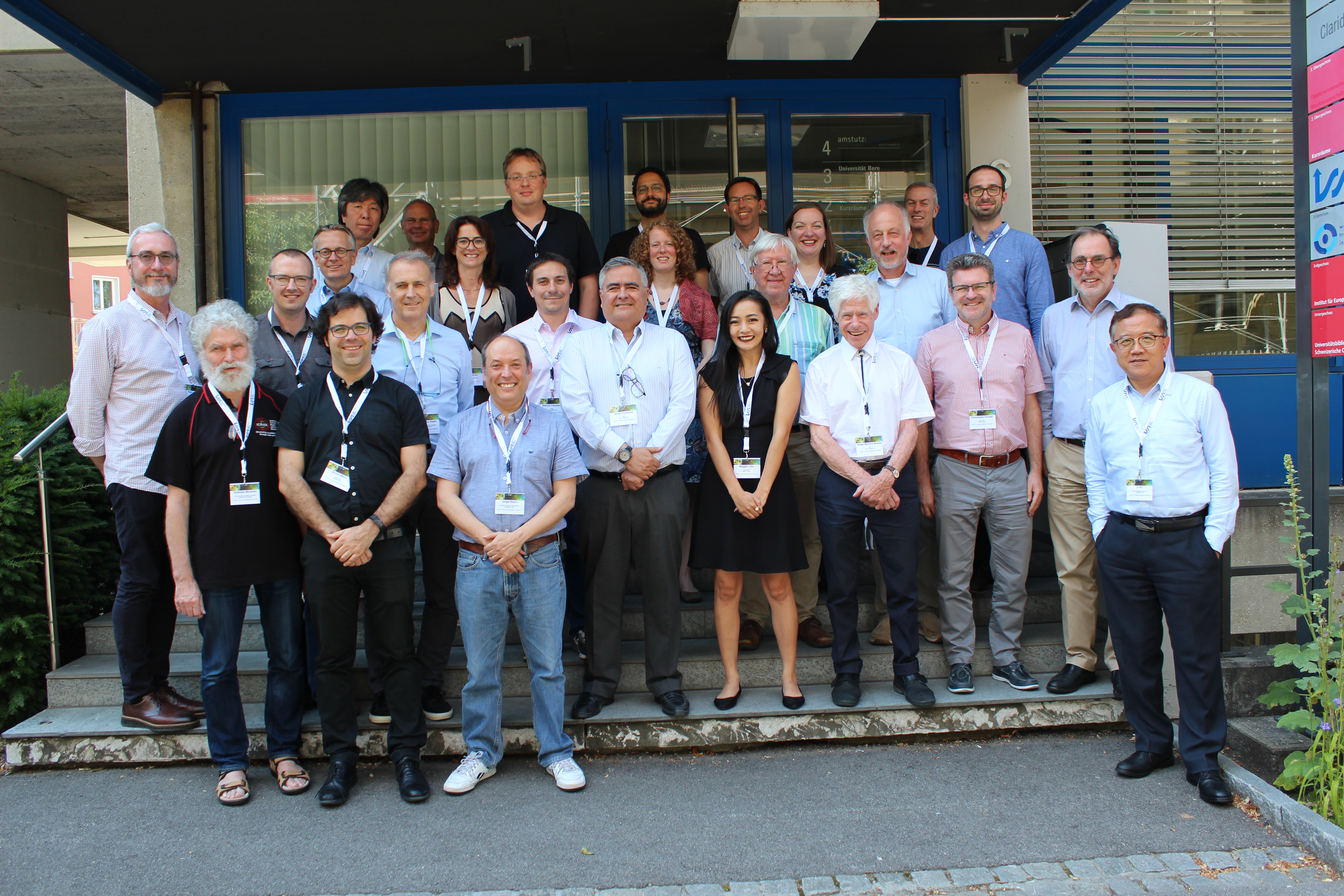Report on ISSI forum Big Data in Astronomy >>
The ISSI Forum “The Impact of Big Data in Astronomy “ took place on July 4 and 5 at ISSI Bern. The rationale behind this topic is the fact that the explosion of astronomical data in volume and complexity is about to change the way we do science. Space-based and ground-based observatories like Gaia, Euclid, LSST or SKA as well as state-of-the-art astrophysical simulations require new tools, means and methodologies for doing research. Among the new techniques range data mining, artificial intelligence, machine learning, pattern recognition and other data-driven methods.
At the ISSI Forum, 26 international experts met in order to discuss these new developments. Underlying questions were, e.g.: How do large surveys and big data science change astronomy? What additional training/skills will future astronomers require? What are the challenges for data storage, data curation, data quality, data provenance? Four keynote talks on “Big Data Challenges in Observations” (by Wil O’Mullane), on “Data Challenges in Archiving” (by Françoise Genova and Bruno Merín), on “Big Data Challenges in Simulations” (by Volker Springel) and on “Big Data Challenges – Now and in the Future” (by Alex Szalay) formed the backbone of the Forum. Nine short contributions were presented by participants. The most important and interesting part of the Forum were the very lively and interesting discussions, they gave a very broad and comprehensive view on the benefits and challenges of “Big Data in Astronomy”. In addition to the demanding technical aspects, also “social” and “sociological” topics were addressed: How can young as well as experienced scientists be taught about these new techniques? Will the future successful scientists have to be an astrophysicist AND a computer scientist AND a software engineer? Or can future big data science only be done in teams with experts from these fields? How much knowledge in data science is necessary for an astronomer? Can young scientists knowledgable in data science share this with “classical” older astronomers and teach them the new tools? What are the career perspectives and paths for young scientists who specialize in “data science”? At the end of the Forum, it was felt that this successful “kick-off” should be followed by suitable further activities, e.g. within IAU or EAS or COSPAR, or maybe with a further event at ISSI.

